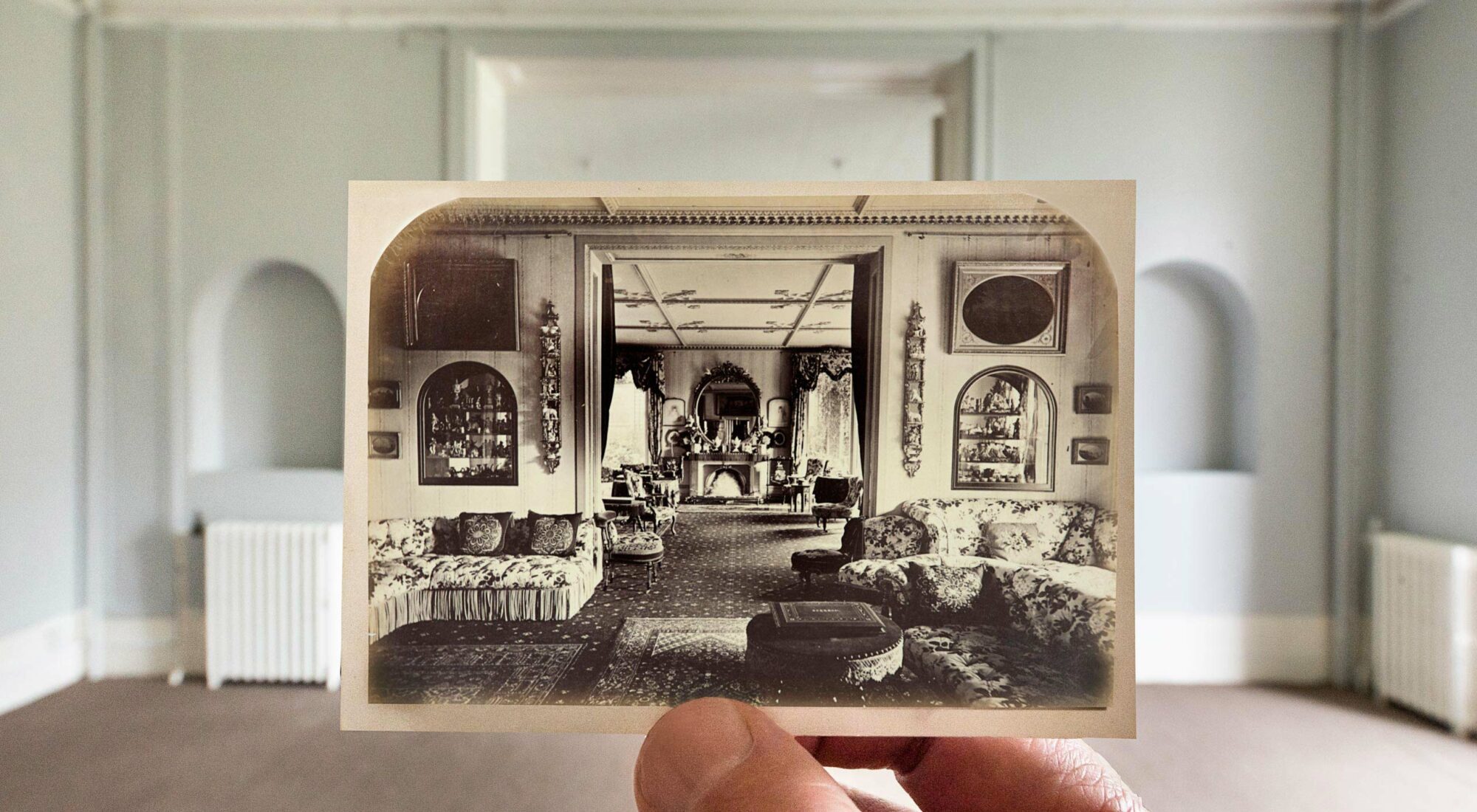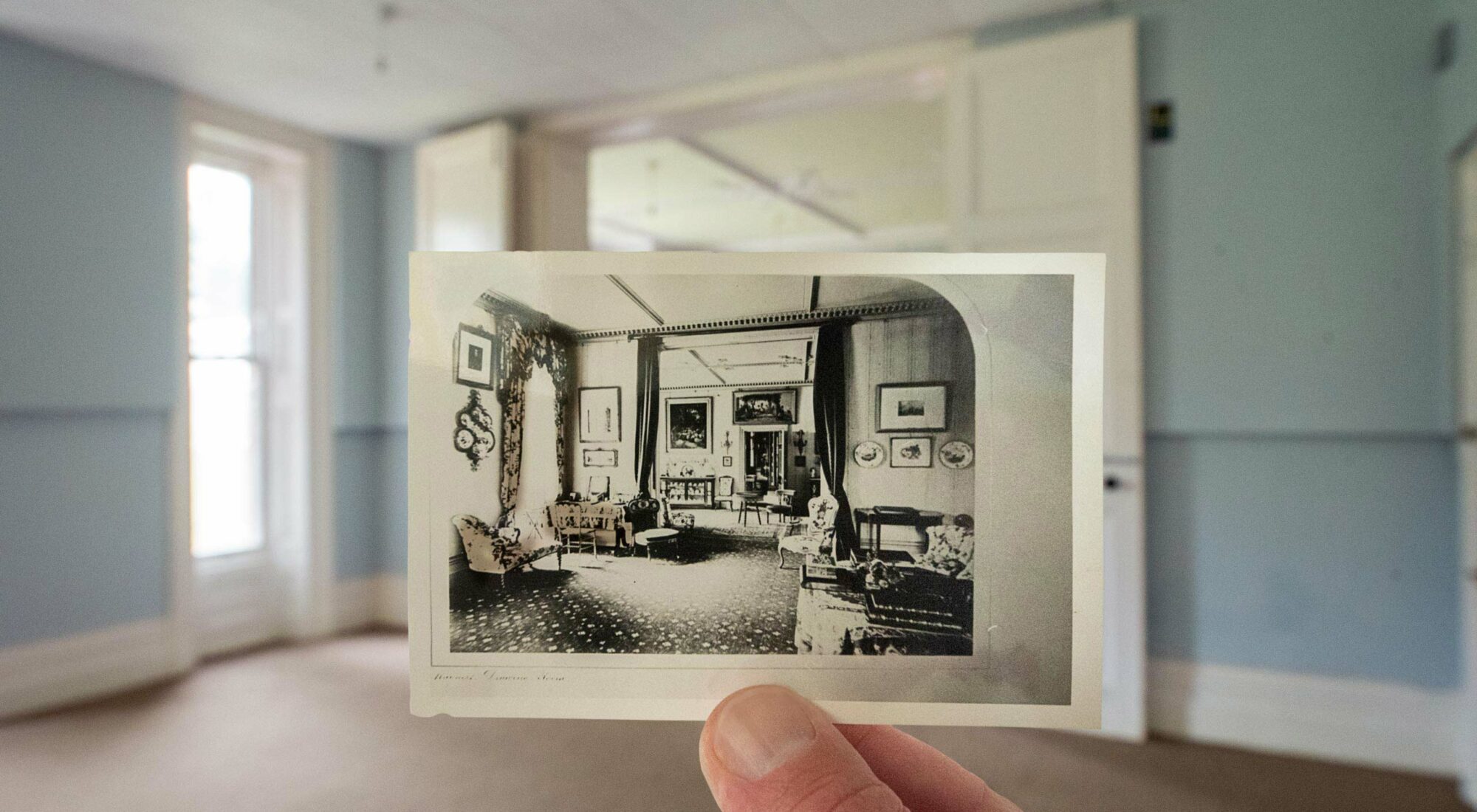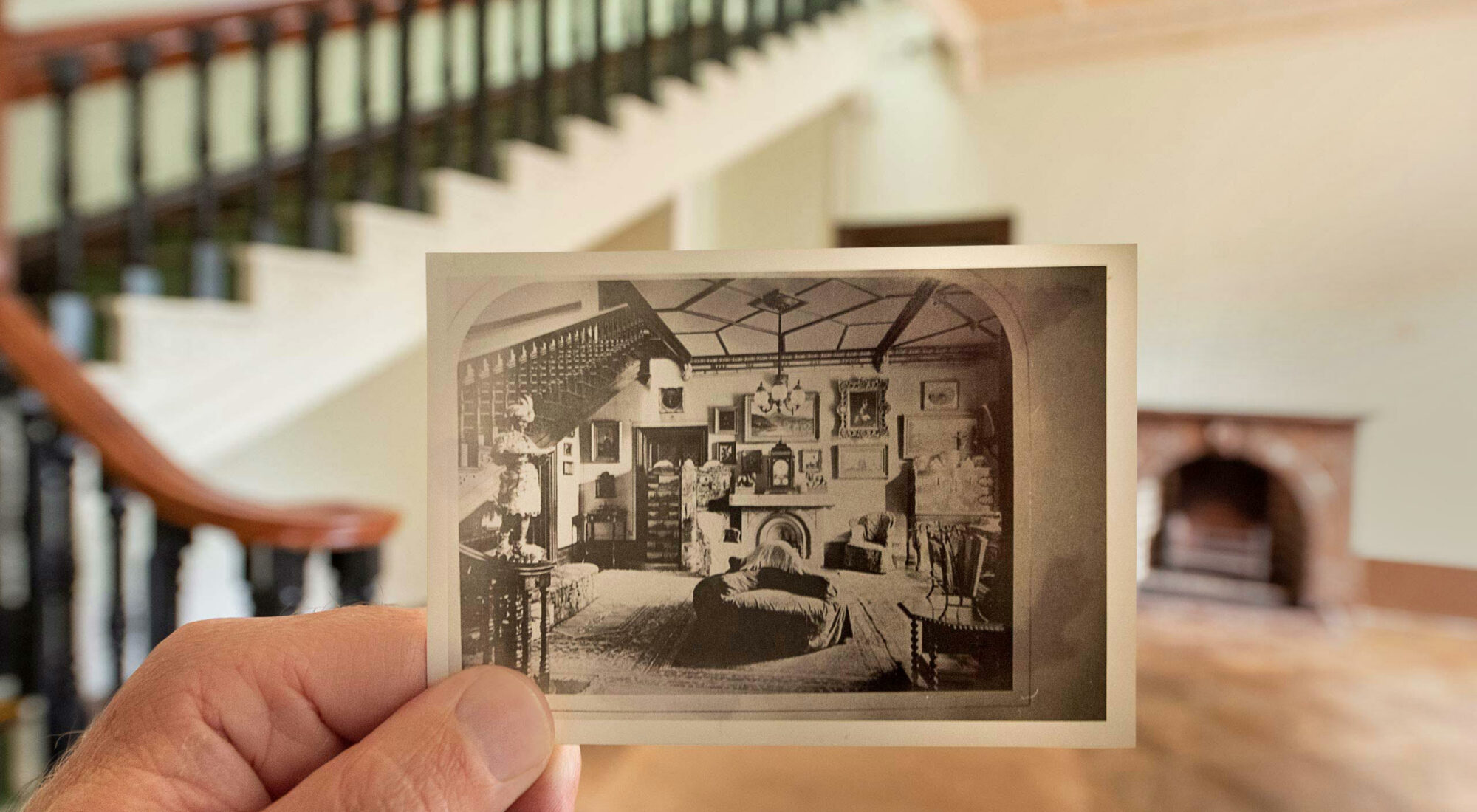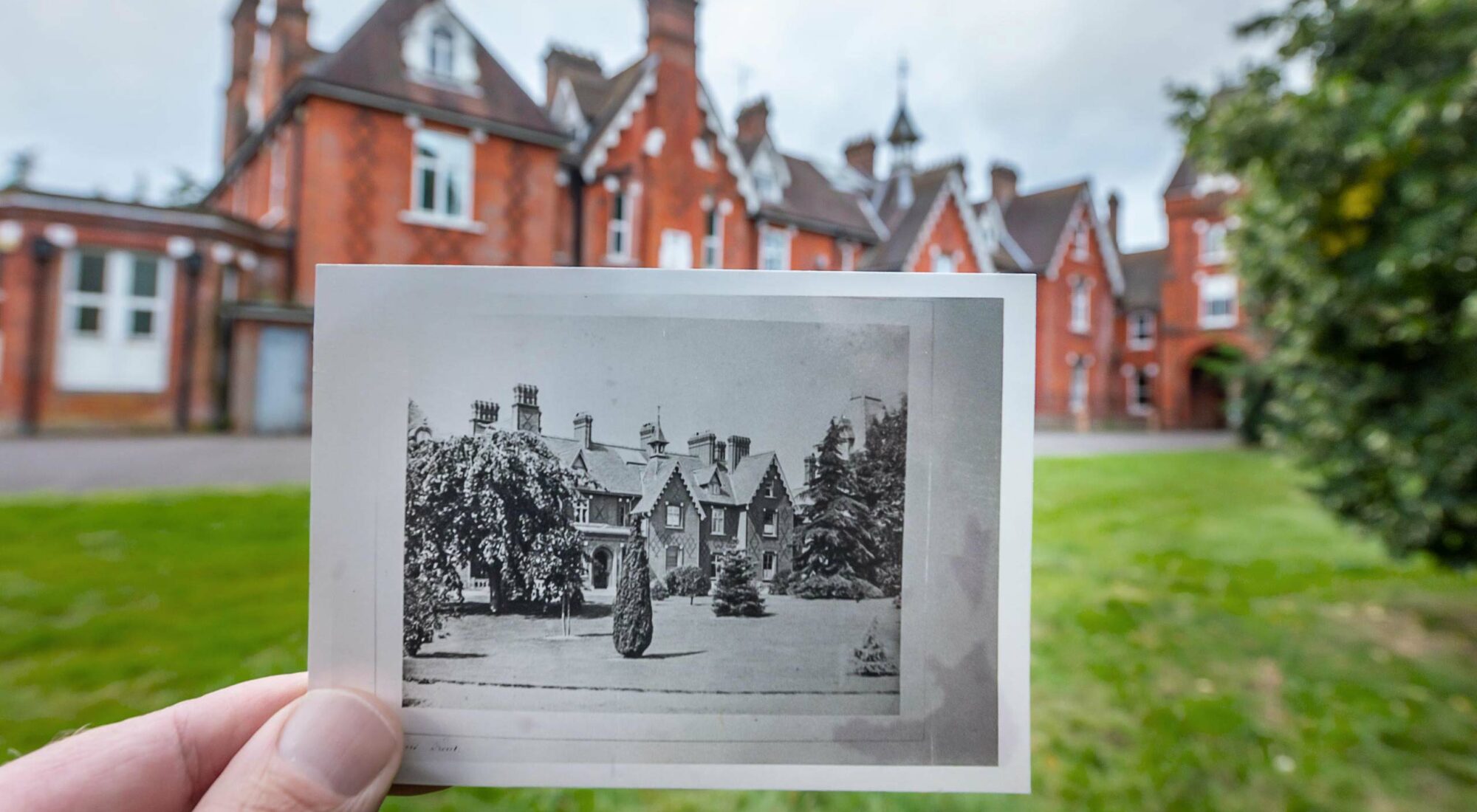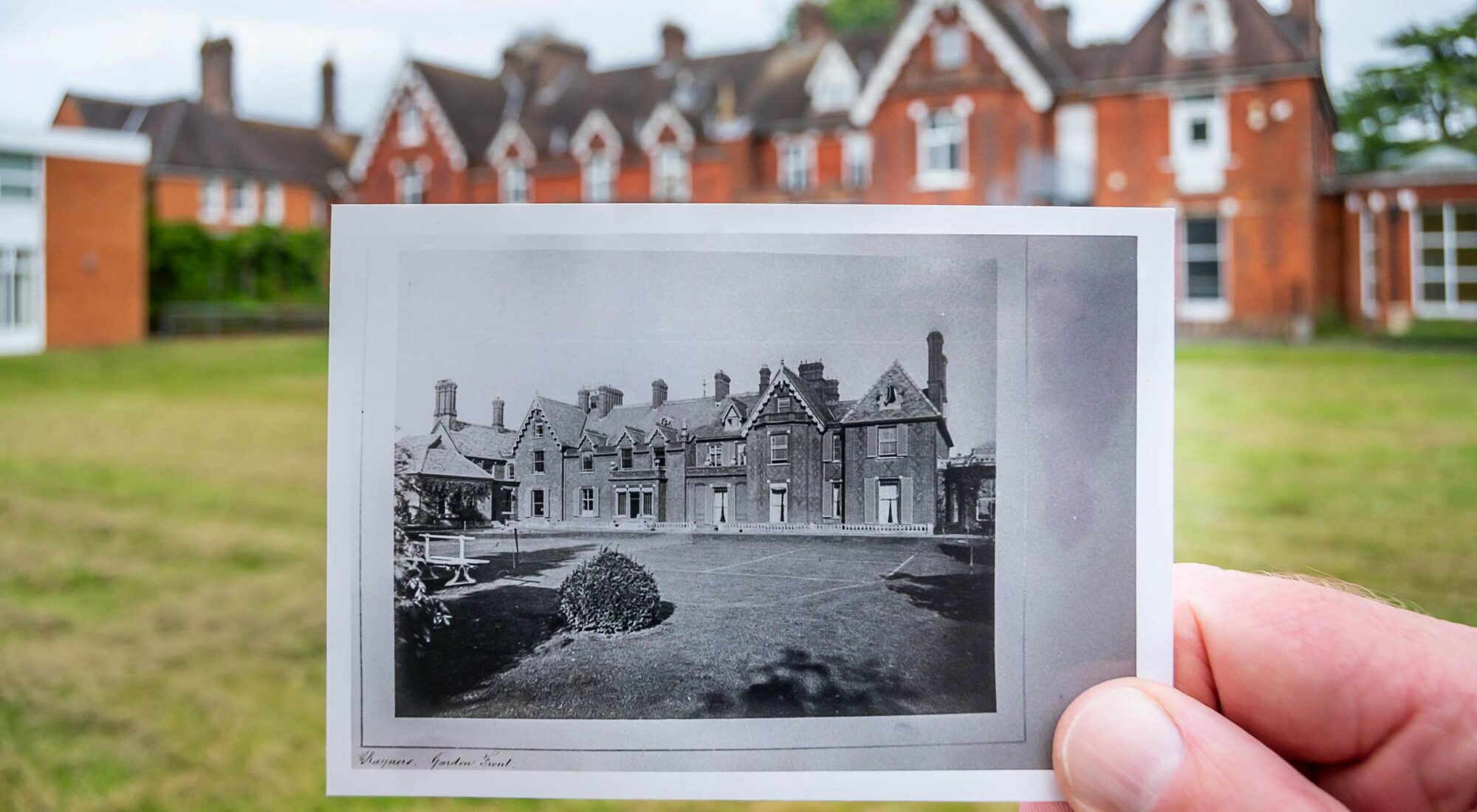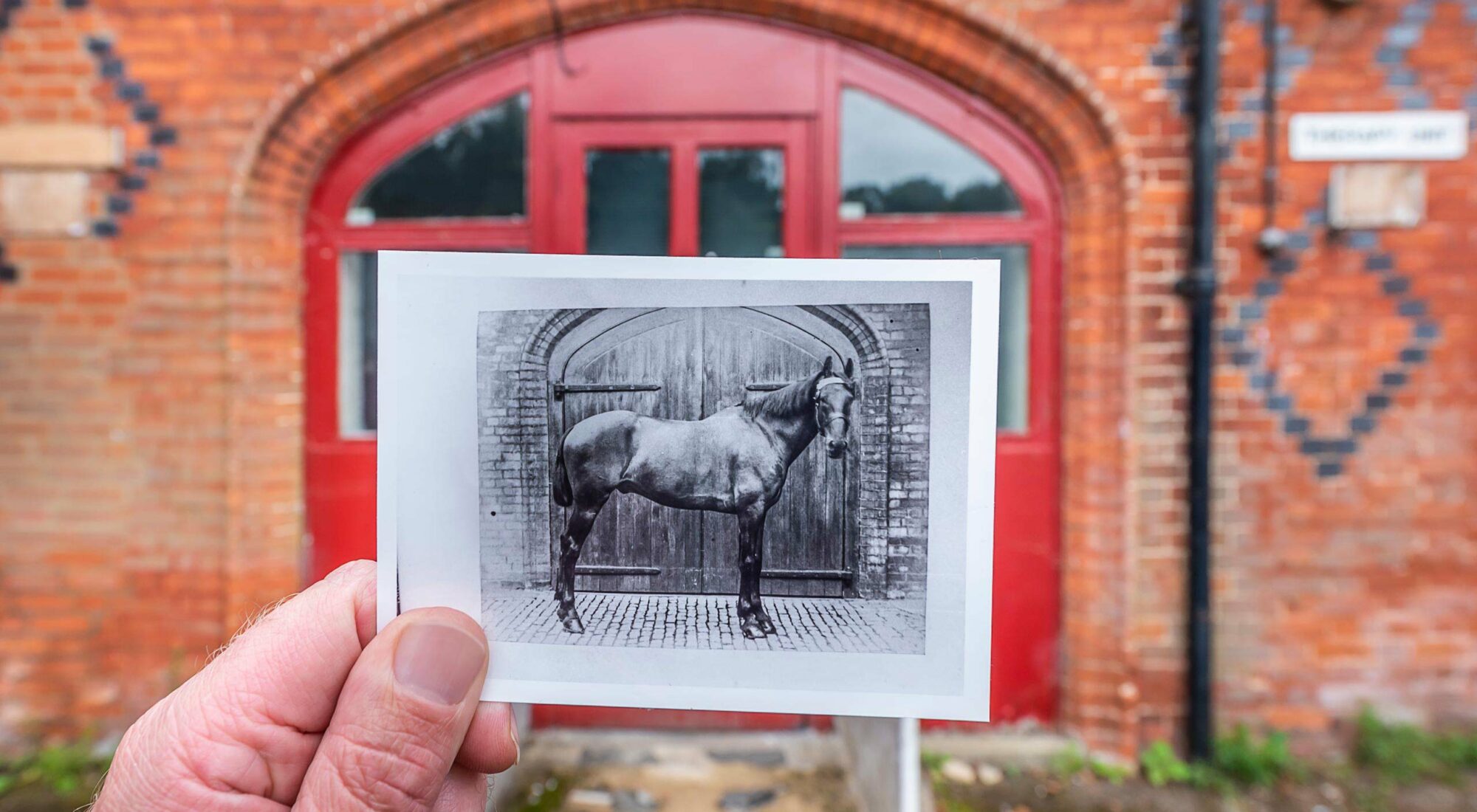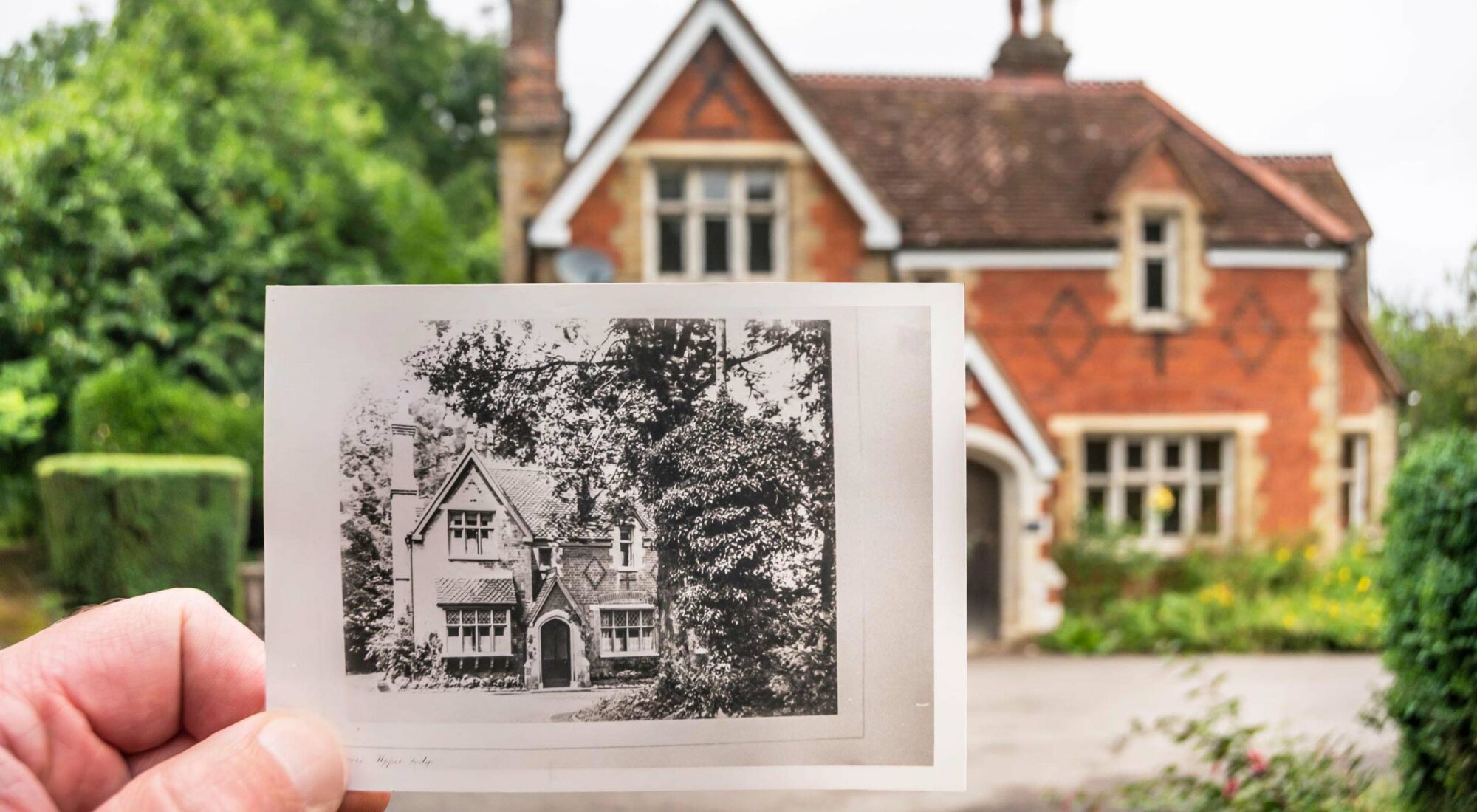
The beginning.
In 1845, Sir Philip Rose purchased two small arable farms, Rayners and Colehatch, for just over £4,500. He planted many trees on a mostly bare hillside and his 550 acre estate eventually extended as far south as the main London Road in Loudwater.
The dilapidated old buildings of Rayners Farm were replaced with a country residence in 1847. Over time there were several additions and in the late 1860’s the house was substantially enlarged. Since then, the main building has barely changed to this day.

Full steam ahead.
The son of a surgeon and former Mayor of Wycombe, Philip Rose was born in Wycombe in 1816, admitted to the Bar as a solicitor at the age of twenty and went on to become a partner in the law firm, ‘Baxter, Rose, Norton & Co’. It was during the rapid expansion of the railway system that the firm earned its fortune. It was at Rose’s insistence that they risked taking on the legal work for the proposed Great Northern Railway at a time when the project was riddled with uncertainty. It proved to be a masterstroke.
Arguably his greatest accomplishment, however, was inspiring and organising the creation of the Brompton Hospital, dedicated to treating those with tuberculosis who could not otherwise afford the care. Rose was appointed Honorary-Secretary of the hospital from its inception until his death.
As a Wycombe man, he was actively involved in many local affairs. He contributed to the Cottage Hospital, gifted land for a Sunday School in Wycombe Marsh and was Governor of the Grammar School. In 1854, largely using his own money, Rose built St Margaret’s Church in Tylers Green and later established a separate parish of Tylers Green. As a benefactor of Tylers Green School, he laid the foundation stone in 1875.
Famous friends.
Benjamin Disraeli, only twelve years older, had known Philip Rose from childhood. Rose helped his electioneering in Buckinghamshire and Disraeli was involved in the Brompton Hospital project. They purchased neighbouring country estates around the same time (Disraeli owned Hughenden Manor) and Rose became a National Agent for the Conservative Party, helping Disraeli return to power in 1874.

In recognition of their long-lasting friendship, a Portland Stone obelisk stands on the main driveway of the estate to record both their friendship and a visit by Queen Victoria en route to Hughenden in 1881 to visit the grave of the recently deceased Disraeli.
Rayners became the focus of the village, employing two-thirds of the adult population as estate workers or tenants. Rose constructed a new road to Loudwater for the new railway station, and sank a 340-feet well to tackle water supply problems faced by Rayners. This proved to be the villagers’ only supply at times of drought. The Rose family also helped sick locals with soup and milk and a maternity box was kept at Rayners for use by villagers. Farm workers received a woollen cardigan each year and Christmas presents were given to every employee, with Lady Rose personally attending the wrapping and labelling.

Passing the baton.
Sir Philip died in 1883 and his son, the second Sir Philip, continued his legacy. Philip Frederick was equally devoted to the estate and village. He kept careful historical records and continued to donate to St Margaret’s Church. He also maintained his father’s generosity when it came to festivities at Rayners. On special occasions, all the villagers were invited to celebrate national events with fireworks, music and theatre.
July 1919 saw the last grand fireworks display at Rayners, in commemoration of victory and peace. Three months later, Philip Frederick passed away and he was buried in the family vault at St Margaret’s Church. His eldest son had died of wounds in 1917 leaving a young boy as heir. The post-war agricultural depression persuaded the heir’s trustees to sell the entire estate. The sale documents highlight generous tenancy terms provided by the family to employees. This changing of hands marked the end of a way of life for the village, in which the Rose family had been at the centre.
Learning curve.
In 1920, London County Council purchased the house and grounds for use as a school for deaf children. Penn School grew significantly in 1960 to include new dormitories, classrooms and a gymnasium. Camden Local Education Authority took responsibility for the school in 1990, but at the end of the decade announced they would no longer do so. The governors, parents and staff took responsibility themselves, but it was on a tight budget as Rayners became a ‘Non-Maintained Special School’. It had a high reputation for many years until sadly it was placed into special measures by Ofsted in 2013. Numbers dropped and the school fell into administration in the summer of 2015.
In 2021, new owners purchased the house and grounds and the revival of Rayners began.
We would like to say a special thank you to Miles Green & Evelyn Clark for their permission to use ‘The Rose Family, Rayners and Tyler’s End Green’ (1982) as a source for this article.
